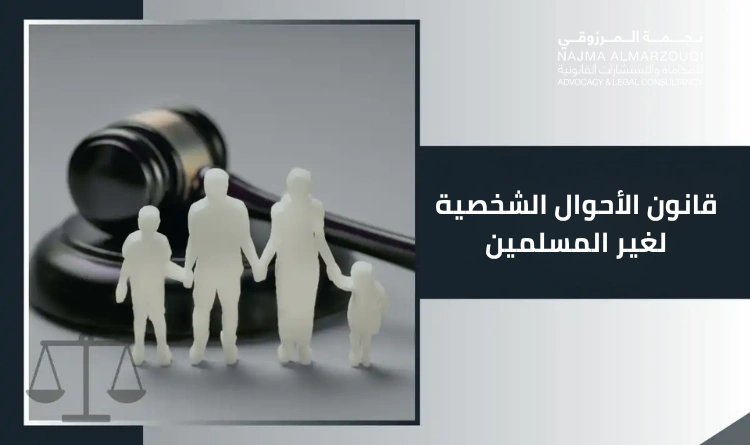UAE Personal Status Law for Non-Muslims: Legislative Flexibility for a Diverse Society
In recent years, the United Arab Emirates has witnessed significant legislative developments reflecting its commitment to coexistence and diversity, particularly in matters of personal status for non-Muslims. Previously, such cases were largely governed by Islamic Sharia provisions or the law of the individual’s home country. However, new laws now offer non-Muslims greater flexibility and wider options in managing their family affairs.
The New Legislative Framework
A key milestone in this regard is Federal Decree-Law No. (41) of 2022 on Civil Personal Status, which aims to regulate personal status matters for non-Muslims residing in the UAE—whether citizens or foreigners—providing them with a modern and comprehensive legal framework.
Before this, Abu Dhabi Law No. (14) of 2021 on Personal Status for Foreigners Non-Muslims in Abu Dhabi established similar provisions at the emirate level.
These laws give non-Muslims two main options:
- Applying the new UAE Civil Law – Individuals may choose to apply the provisions of Federal Decree-Law No. (41) of 2022, which offers clear and simplified rules for marriage, divorce, custody, inheritance, and more.
- Applying the law of their home country – Individuals can still opt for the law of their country of origin for personal status matters, provided it complies with UAE legislation and does not conflict with public order and morality.
Key Features of the Civil Personal Status Law for Non-Muslims
The new law is designed to promote equality, fairness, and to meet the needs of the UAE’s diverse society:
- Civil Marriage: Allows civil marriage before the competent court with simple requirements—both parties must be at least 21 years old, have no legal impediments or prohibited kinship, and explicitly consent to the marriage. This offers an alternative to traditional religious procedures.
- No-Fault Divorce: Either spouse may unilaterally request divorce without proving harm or fault on the part of the other. This simplifies the separation process and reduces emotional strain.
- Equality in Rights and Duties:
- Court Testimony: A woman’s testimony is equal to a man’s.
- Alimony: The wife may request alimony after divorce, considering the length of the marriage, the spouses’ ages, and each party’s financial situation.
- Joint Custody: Emphasizes shared custody for both parents post-divorce in the best interests of the children. At age 18, children may choose to live with either parent.
- Inheritance: Allows non-Muslims to freely distribute their estate through an approved will. In the absence of a will, the law prescribes equal inheritance for males and females, unlike the rules under Islamic Sharia.
- Paternity: Paternity may be established through marriage, parental acknowledgment, or, in certain cases, DNA testing.
Significance of These Legal Developments
These legislative changes reflect the UAE’s vision as a modern and open nation that respects the cultural and religious diversity of its residents. They provide a more flexible legal environment that affirms the rights of non-Muslims, enhancing the country’s attractiveness as a global hub for business and residency.
The Role of Specialized Lawyers
Given the novelty of these laws and the options they provide, the role of specialized lawyers in personal status matters for non-Muslims is crucial. They offer precise legal advice on the applicable law (the new UAE law or the home country’s law), assist in drafting contracts and wills, and represent clients in court to safeguard their rights and achieve the best possible outcomes.
Understanding these legal reforms is essential for all non-Muslims in the UAE to make informed decisions about their marriage, divorce, child custody, and inheritance—within a legal framework that respects their personal freedoms and beliefs.
If you want, I can also prepare a side-by-side comparison table between the UAE Civil Personal Status Law for Non-Muslims and Islamic Sharia-based Personal Status Law to highlight the differences clearly for clients. Would you like me to create that?




